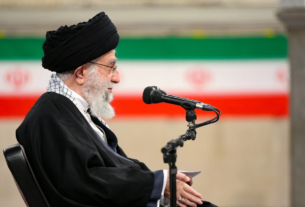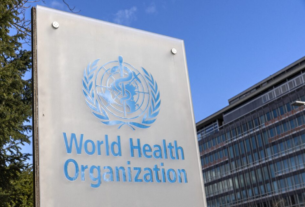North Africa has become a key transit point for migrants hoping to reach Europe. Many face significant challenges trying to escape poverty, conflict, and instability in their home countries. North African nations play a central role in controlling these migration flows but often do so through harsh and restrictive policies.
Countries like Libya, Tunisia, and Morocco have been under pressure to manage the increasing number of migrants attempting to reach Europe. To stop migration, governments have worked closely with the European Union (EU) to implement strict border controls. These measures often involve pushing migrants back, detaining them in camps, and using force to prevent departures.
Libya, in particular, has become a focal point for the migration crisis. The country has long struggled with instability, and the absence of a strong central government makes it easier for smugglers to operate. Migrants trapped in Libya face extreme conditions. According to the International Organization for Migration (IOM), many migrants are subjected to physical abuse, forced labor, and sexual violence.
Tunisia, while more stable than Libya, also faces challenges. Tunisian authorities work with the EU to prevent migrants from leaving their shores. Migrants are often detained or forced to return to their countries of origin. While some migrants attempt to cross the Mediterranean Sea from Tunisia, the government enforces strict surveillance along the coast, making it difficult for boats to depart.
Morocco, another key transit country, plays a similar role. It is a significant source of migration routes to Europe. Moroccan authorities have been involved in preventing migrants from entering the Spanish enclaves of Ceuta and Melilla. In some cases, migrants have been met with violence, including the use of rubber bullets and tear gas. Morocco’s cooperation with the EU has led to more vigorous border enforcement as with other countries in the region.
The EU has provided funding and support to North African countries in return for their cooperation in stopping migration. European governments argue that these measures are necessary to prevent the flow of migrants, but human rights groups claim they contribute to a climate of violence and fear. Organizations like Amnesty International and Human Rights Watch have reported on the mistreatment of migrants in detention centers and on the dangerous conditions faced by those trying to cross the sea.
Many migrants, particularly those from sub-Saharan Africa, view North Africa as a temporary stop on their journey to Europe. They often face extreme hardship, including dangerous conditions in overcrowded detention centers and a lack of necessities. For example, reports indicate that some migrants spend months in harsh conditions while they wait for an opportunity to continue their journey.
The route through the Sahara Desert is one of the deadliest. Migrants who attempt to cross face a long, perilous journey where many die from dehydration, hunger, or violence. Even if they make it to the coast, the risks continue. The Mediterranean crossing is one of the deadliest migration routes in the world. Thousands of people have drowned trying to reach European shores from North Africa.
North African governments face pressure from both the EU and their populations. On one hand, they are expected to manage migration flows and prevent illegal border crossings. Conversely, they must balance this with domestic concerns, including human rights and political stability. Some governments have faced criticism from their citizens for the way migrants are treated.
While efforts to control migration have intensified, the underlying causes driving migration remain largely unaddressed. Poverty, lack of opportunity, and conflict in countries like Sudan, Eritrea, and others continue to push people toward Europe. Until these root causes are tackled, the flow of migrants will likely continue.
The EU’s reliance on North African countries to manage migration has raised significant ethical and legal questions. The treatment of migrants, especially those stuck in detention centers, has drawn international condemnation. Critics argue that by outsourcing border control to these countries, the EU indirectly supports human rights abuses.
The migration situation in North Africa presents a complex and ongoing challenge. While some governments have succeeded in limiting migration flows, the cost has been high for migrants who face abuse, exploitation, and death. Until the root causes of migration are addressed, these tragic circumstances will likely continue.




